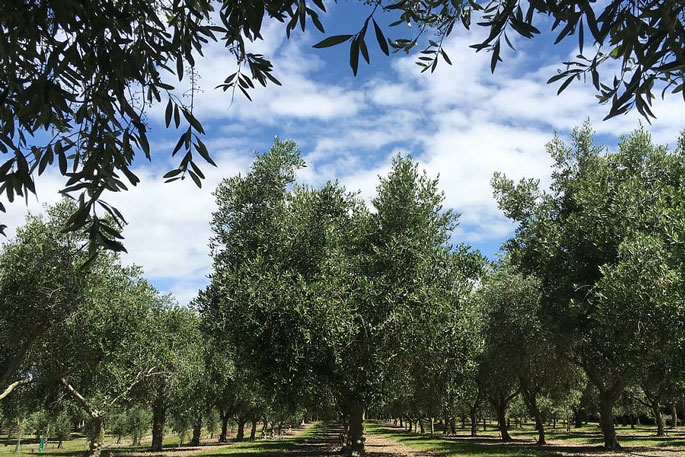Extreme weather and the spread of disease has seen some North Island olive growers ditch harvesting altogether this season.
The country's 300 or so olive farms have been crunching the numbers from harvest which runs from late March through to July.
Olives New Zealand executive officer Emma Glover says heavy rainfall, low sunshine hours and Cyclone Gabrielle resulted in lower yields which will have flow on effects for olive oil supply.
She says many smaller, hobby-type growers, who contribute to New Zealand extra virgin olive oil pool, have been hit hard this season.
"What we're finding is because of wet there's been a lot more disease in the trees pre harvest, so smaller growers just haven't bothered harvesting this year.
"The cost just wasn't worth it for them when they had low volume of product - so I guess that's where it's fallen out.
"It is really disappointing, but it's been tough."
Unfortunately, fungal fruit disease anthracnose has affected around a third of local olive production, she says.
It's seen as the worst disease for olive fruit globally, spreading easily in warm and wet weather - and rotting the fruit from the inside out.
"Anthracnose is one of the bigger problems. A lot of groves across the country, especially in the North Island, that have never seen it in the grove before, have got it quite badly and that affects the fruit. Fruit that's got anthracnose in it, it ruins the oil, so you can't produce it.
"Oil that I've received to go get certified to be extra virgin olive oil is down on numbers probably about a third compared to last year at this stage, but I'm hoping there will be some late oil coming through."
Global prices for olive oil continue to rise after heat and drought hit the Mediterranean earlier this year, especially in Spain which has resulted in a smaller supply.
Glover expects consumer prices for olive oil to continue to rise while Europe holds low volumes of oil and Australian growers also reported a difficult season with lower yields.



0 comments
Leave a Comment
You must be logged in to make a comment.